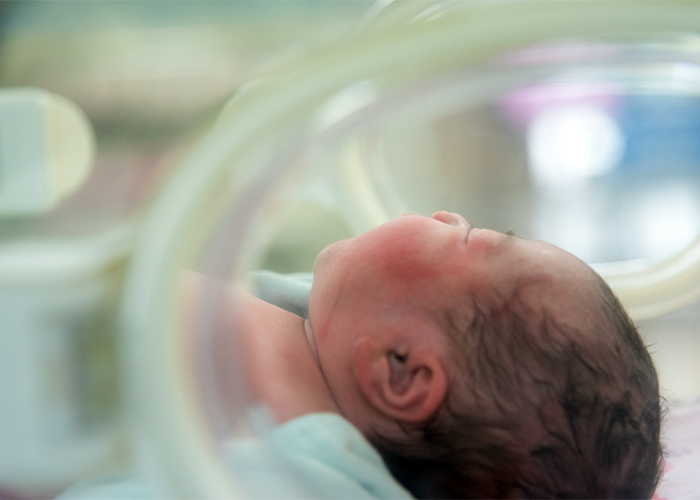




Hip Dysplasia in Babies
Making A Clinical Negligence Claim On Behalf Of Your Child
While there is a newborn screening test for hip dysplasia in babies, it may not be immediately evident. This would require additional tests for a newborn. Hip dysplasia, known as developmental dysplasia of the hip (DDH), may also develop within a few months after birth. If it is left untreated, it can have a serious impact on your child’s health.
You may have grounds for a medical negligence claim if a medical professional fails to diagnose or properly treat hip dysplasia in a timely manner resulting in long-term complications.
Jefferies Claims may be able to help and we work with lawyers who operate on a ‘No Win, No Fee’ basis.
What Is Hip Dysplasia?
Hip dysplasia is a condition where the hip joint does not develop properly. This happens when the ball of the hip (femoral head) is not securely seated in the hip socket. This condition can range from mild instability to complete dislocation.
DDH is more common in girls, first-born children, and babies born in the breech position. Untreated DDH can lead to severe mobility problems in later life, so early detection is critical.
Signs of Hip Dysplasia in Babies
Parents and medical professionals should be vigilant about the early signs of hip dysplasia, which include:
Uneven Leg Lengths – One leg may appear shorter than the other due to the displacement of the hip joint.
Asymmetrical Skin Folds – Extra creases on one thigh or buttock can indicate an issue with hip alignment.
Limited Range of Motion – Difficulty in spreading the baby’s legs apart, particularly when changing diapers, could be a warning sign.
Clicking or Popping Sounds – A clicking or popping noise when moving the baby’s legs might indicate hip instability.
Delayed Walking or Limping – If left untreated, hip dysplasia may cause delays in standing or walking, leading to limping.
Unusual Crawling Pattern – A baby with DDH may drag one leg while crawling.
Pain and Stiffness – Although rare in infants, older babies and toddlers with untreated DDH may experience discomfort.
Routine new-born screening includes a physical examination where doctors perform tests which help identify instability or dislocation.
Consequences of Missed or Delayed Diagnosis
When diagnosed early, DDH is highly treatable. However failure to detect and treat hip dysplasia early can lead to serious complications, which may include:
Osteoarthritis and Chronic Pain – Undiagnosed DDH increases the risk of developing osteoarthritis in the hip joint, leading to chronic pain and limited mobility in adulthood.
Hip Dislocation – A partial or complete dislocation can cause significant functional impairment, affecting the child’s ability to walk and perform daily activities.
Leg Length Discrepancy – A misaligned hip joint can result in one leg being shorter, leading to an uneven gait and musculoskeletal imbalances.
Gait Abnormalities – If untreated, hip dysplasia can cause limping, difficulty walking, and reliance on walking aids in later life.
Need for Invasive Surgery – Late diagnosis often necessitates complex surgical interventions, such as a toal hip replacements. These come with long recovery periods and potential complications.
Emotional and Psychological Impact – Children with mobility challenges may experience lower self-esteem and reduced participation in physical activities, affecting their overall well-being.
Can You Claim on Behalf of Your Child?
Yes, as a parent or legal guardian, you can pursue a medical negligence claim on behalf of your child any time before the child turns 18. The claim aims to secure compensation for the child’s suffering, medical expenses, and any future care requirements.
To establish medical negligence, the following, evidence will be required to prove:
There was a failure to carry out appropriate examinations, was the child referred for imaging and was there timely treatment. Additionally, such a misdiagnosis must be proved to have directly caused harm which result in mobility issues, pain or invasive surgery.
‘No Win, No Fee’ Compensation Claims
At Jefferies Claims, we will support you and your family through this process with care and understanding. We only work with lawyers who will assess all aspects of your case and who operate on a ‘No Win, No Fee’ basis.
Contact Jefferies Claims today at 0333 358 3034. Alternatively, complete our online contact form to arrange an initial no-obligation telephone consultation with a member of our friendly team.
